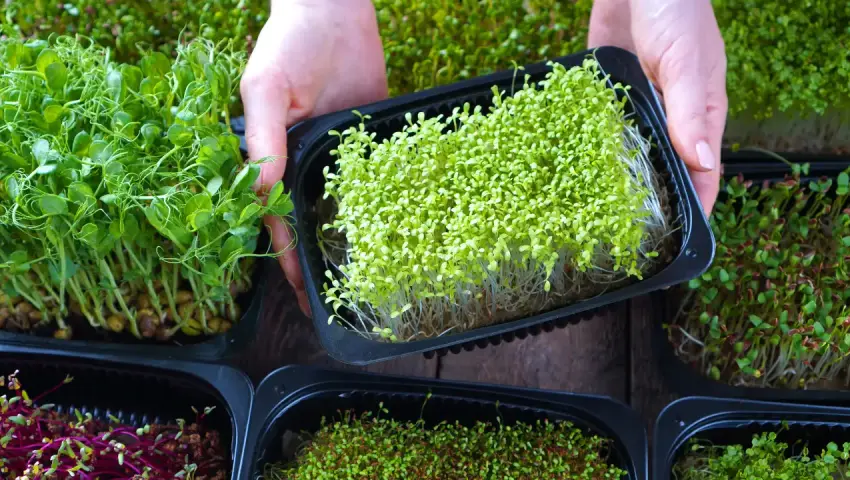
Microgreen Business in Bangladesh: Health, Opportunity & Future Potential - 2025
In Bangladesh, the number of health-conscious people is growing rapidly. With the rising popularity of organic food, healthy diets, and fitness culture, new food trends are making their way into daily life.
In Bangladesh, the number of health-conscious people is growing rapidly. With the rising popularity of organic food, healthy diets, and fitness culture, new food trends are making their way into daily life. Among them, microgreens have emerged as a promising new trend. These tiny greens may look small, but their nutrition, flavor, and visual appeal have earned them the reputation of being a “superfood.”
While the microgreen industry is already established in developed countries, Bangladesh is now at the early stage — which means huge potential for entrepreneurs.
What are Microgreens?
Microgreens are young vegetable or herb seedlings harvested 7–14 days after germination, usually 2–3 inches tall. Studies have shown that microgreens contain significantly higher levels of vitamins, minerals, and antioxidants compared to their fully grown counterparts. Popular varieties include broccoli, sunflower, red cabbage, and pea shoots.
Market Situation in Bangladesh
At present, the microgreen market in Bangladesh is still emerging. A few initiatives, such as Water & Plant, have started selling growing kits and creating awareness. Many households have begun growing microgreens at home, but large-scale production and commercial supply are still very limited — creating a significant opportunity for new entrants.
Why is Microgreen Business Profitable?
Quick harvest – Ready in just 7–14 days.
Low space requirement – Can be grown in balconies or small indoor spaces.
Low competition – Still a new concept in the local market.
High profit margin – 100 grams of microgreens can sell for BDT 150–250.
Growing demand – From gyms, diet followers, restaurants, and cafes.
Business Model: “Grow, Eat, Repeat”
The core idea is to teach people to grow their own microgreens at home, creating a sustainable habit and ensuring recurring customers.
Core Products
Family Pack Kit – 3-month supply including trays, cocopeat, seeds, and spray bottle
Student Pack Kit – Compact version for flats or hostels
Refill Pack – Seeds and cocopeat only for repeat customers
Ready-to-Eat Pack – Fresh microgreens delivered in premium packaging
Sales Channels
Online store, Facebook, and Instagram
Restaurants, cafes, and health food stores
Farmers markets and live workshops
Marketing Strategies
“7-Day Green Challenge” – Customers share photos/videos of their microgreen growth journey
Collaborations with health bloggers and food influencers
Mini growing workshops in schools and universities
Attractive, eco-friendly branded packaging
Future Potential
The organic food market in Bangladesh is expected to grow rapidly in the coming years. With rising health awareness, microgreens are likely to find their place not only in upscale restaurants and hotels but also in regular households. Entrepreneurs who enter the market now will have the advantage of establishing a strong brand before the competition increases.
Conclusion
Microgreen business is not just about selling food — it’s about promoting a healthy lifestyle. In Bangladesh, the market is still a “blue ocean” opportunity with minimal competition. With the right planning, quality products, and awareness-building efforts, microgreens could spark a healthy eating revolution in the country.
Super Admin
Leave a comment
Your email address will not be published. Required fields are marked *